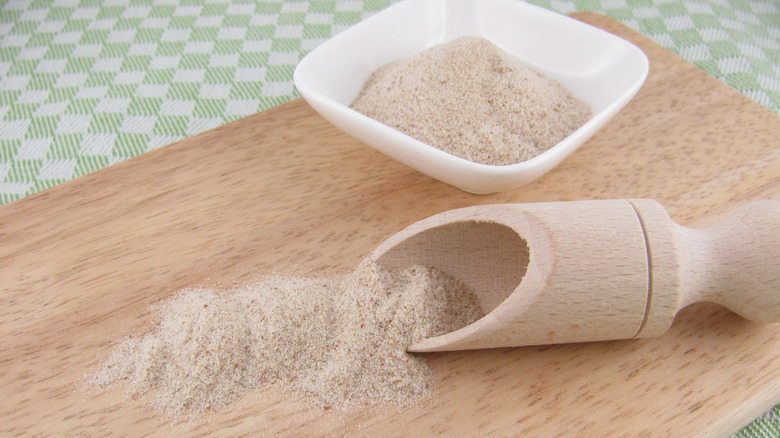What Is Psyllium And Is It Good For You?
Psyllium is a type of soluble fiber used in many over-the-counter products to help reduce constipation. Made from the husk of the Plantago ovata plant, this bulking fiber is good for much more than balancing bowel movements, according to Medical News Today.
What makes this fiber so effective is the fact that it is soluble. These types of fiber get food moving through your digestive system at a healthy speed, which helps with constipation and diarrhea.
Psyllium is a prebiotic, meaning that it encourages the growth of healthy probiotics in the intestines. Healthy gut flora is essential for reducing inflammation and fighting infections (via Healthline).
But the benefits of taking psyllium go beyond your gut and intestines. Studies show that it can help lower high levels of low-density lipoprotein (LDL) cholesterol. According to Harvard Health Publishing, taking 10 to 20 grams with eight ounces of water per day is enough to lower levels anywhere from 5 to 10%.
Additional benefits of adding psyllium to your diet
Psyllium also appears to be good for your heart. Actually, all types of fiber are, but water-soluble fibers, like psyllium help reduce blood pressure. One study showed that taking 10.2 grams per day improved heart health, thus lowering the risk of heart disease. More research suggests that regular consumption of psyllium reduced systolic blood pressure (via Medical News Today).
Adding more psyllium to your diet might also help lower your blood sugar levels. Fiber slows down how quickly your body absorbs sugar, which makes it helpful in reducing the risk of developing type 2 diabetes (via Mayo Clinic).
If you are looking to lose weight, supplementing with psyllium may help. Because the fiber expands in your gut, it slows down the time it takes for your stomach to empty. This may result in you feeling fuller longer, which could lead to a decreased appetite (via Healthline).
Add soluble fiber to your diet slowly to avoid any bloating, gas, or other intestinal problems.


